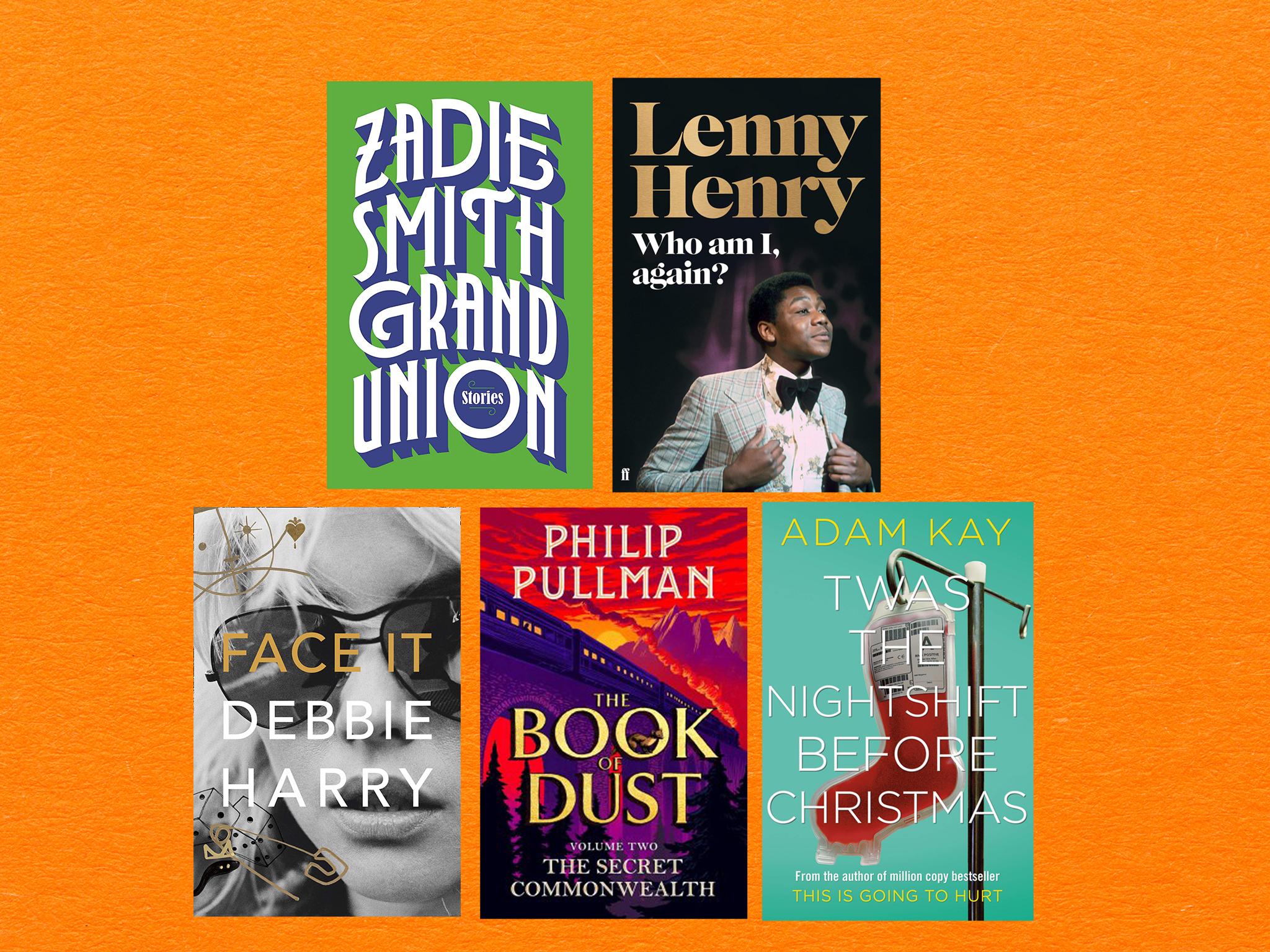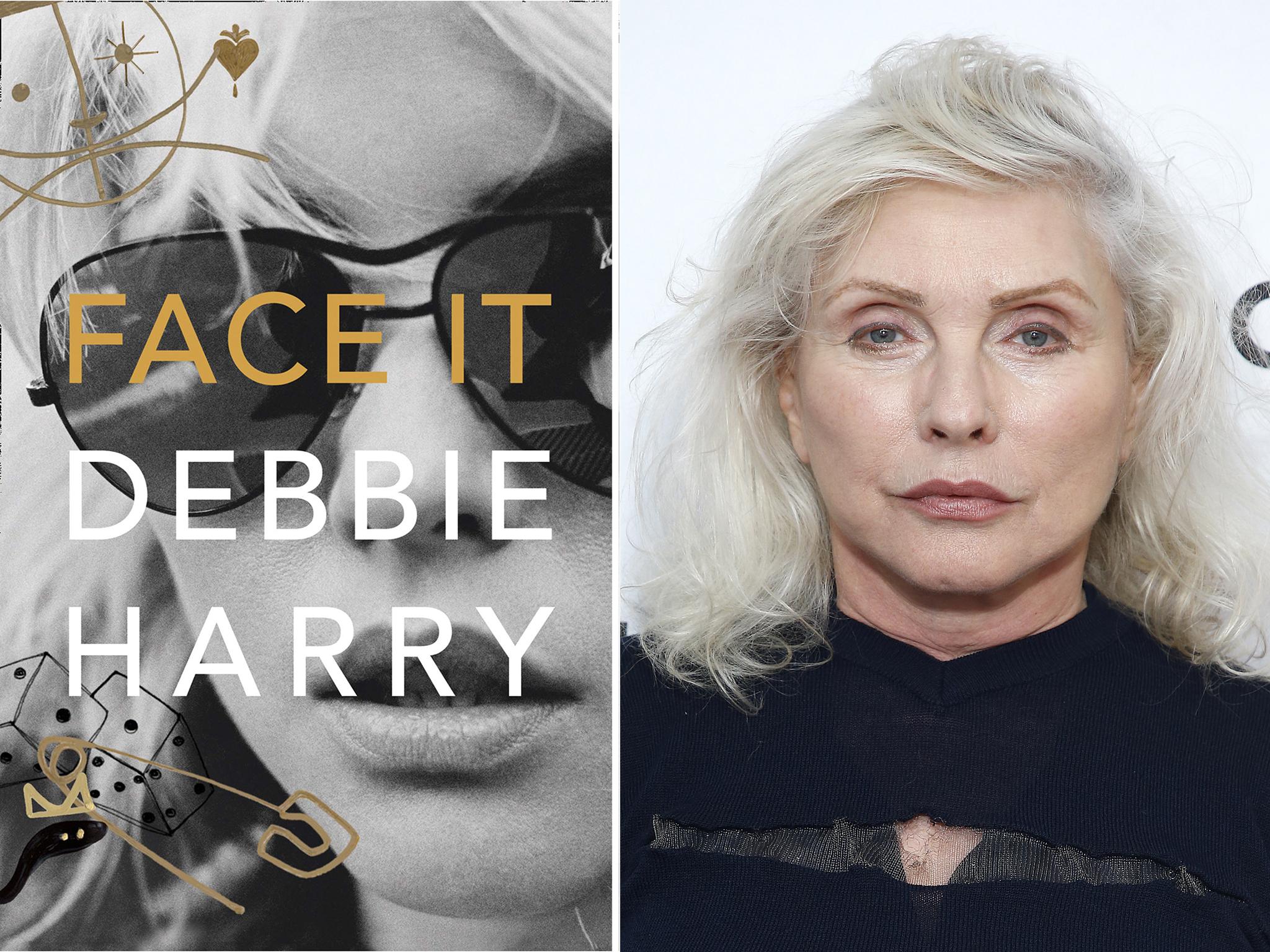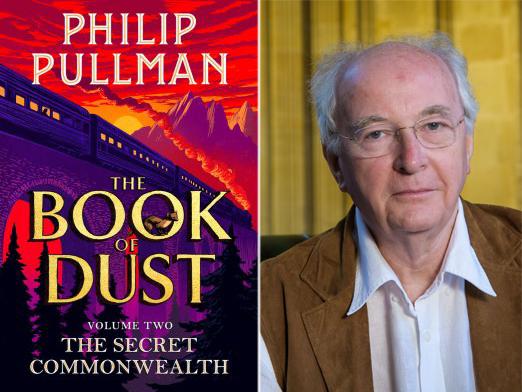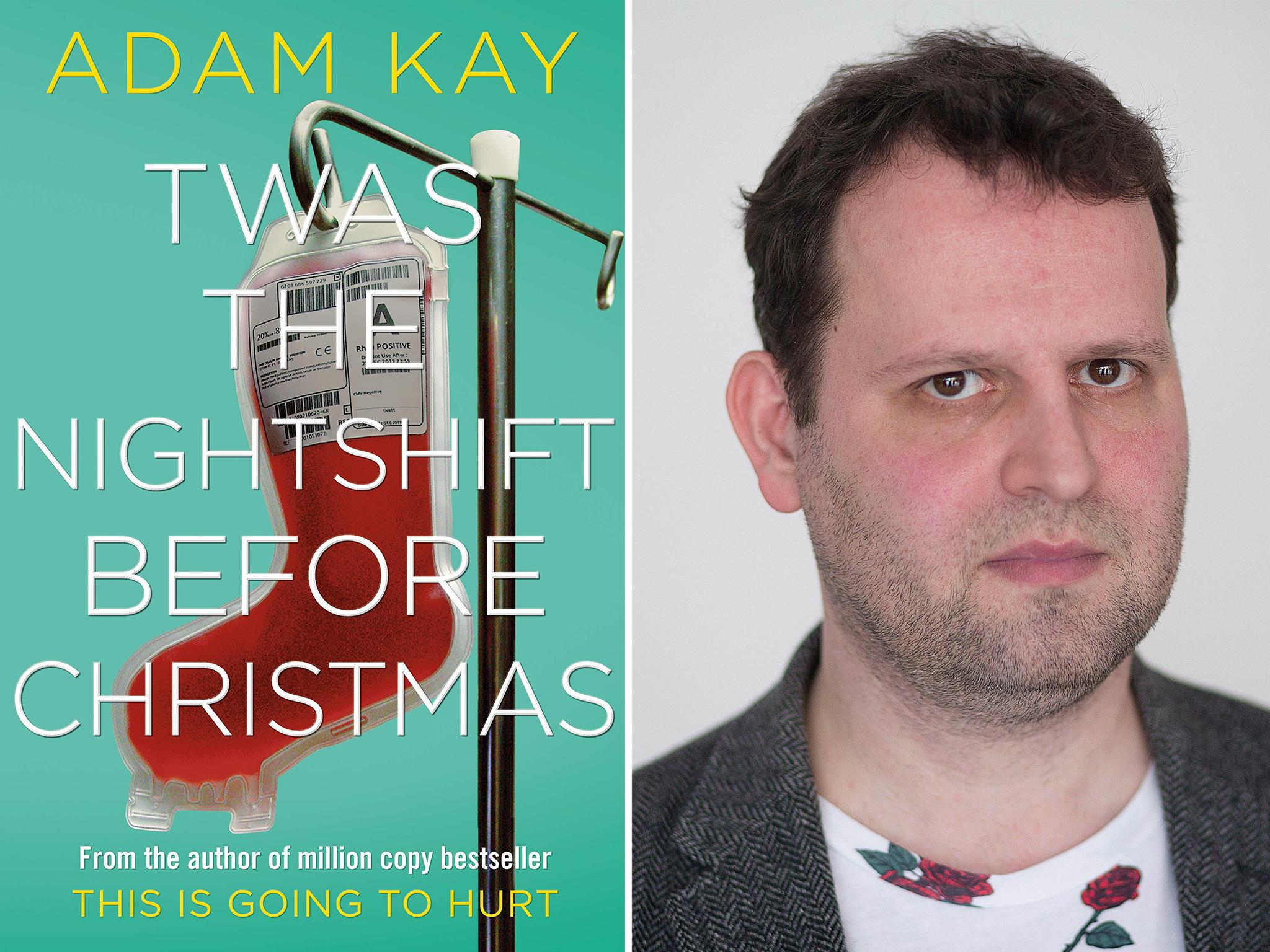Books of the month: From Philip Pullman's The Secret Commonwealth to Adam Kay's Twas The Nightshift Before Christmas
In the first of our new monthly book column, Martin Chilton reviews five of October’s best books


Roberta, a character in Zadie Smith’s captivating new collection of short stories, says she knew Debbie Harry back in the old New York East Village days. "Whatever happens to old punks?" she muses. "Enquiring minds want to know.” Well, they go on to publish their life stories. Harry, the iconic figurehead of Blondie, tells her tumultuous tale in Face It.
Harry’s book attempts to look at what it is to understand yourself, to grow up and make sense of a confusing world, a quest that is also apparent in the new autobiography from comedian Lenny Henry and in the fictional journey of Lyra Belacqua, the central character in Philip Pullman’s latest novel The Secret Commonwealth.
Racism is another theme linking some of the leading books this month. One of Smith’s stories is about an immigrant who is brutally murdered in the late 1950s. Henry grew up in that Windrush era and he discusses bigotry in modern Britain, including the issues raised by the treatment of Grenfell Tower residents. Former teacher Pullman names a character after GCSE student Nur Huda el-Wahibi, one of the victims of that tragic fire. While John Grisham’s The Guardians is a tale of a lawyer fighting to exonerate an innocent black man let down by the US judicial system.
Pullman’s fantasy novel reflects the chaos of modern times. The fractured 21st-century world continues to offer inspiration to acclaimed writers such as John le Carré, whose new novel Agent Running in the Field features controversial topics such as Brexit, Donald Trump and the growing threat from Moscow.
Here’s our review of five books published in October 2019

Face It by Debbie Harry ★★★☆☆
“I’ve had one f**k of an interesting life,” says Debbie Harry in her memoir, which is truly a tale of sex, drugs and rock ‘n’ roll. Given some of the revelations about heroin and cocaine use in Face It, one can only be thankful that it isn’t a scratch and sniff publication.
As Blondie, singer and actress Harry was one of the most original and successful female singers of the 1970s. Her tales of stardom are amusing – Phil Spector’s idea of showing a girl a good time was doing impressions of comedian WC Fields and then running a gun down Harry’s thigh-high leather boots and saying “bang, bang” – but the most affecting parts of her autobiography are about growing up. She was a child in an era of “fewer distractions”, with time for day-dreaming.
Harry had to endure creeps from an early age, whether that was strangers flashing at her (when she was just eight), or when she and a friend were hit on (as pre-teens, mind) by two strangers in their late thirties. One turned out to be the acclaimed jazz musician Buddy Rich, the hero of many drummers Harry would later get to know. Although Harry describes the first penis-waving flasher as a “pervert”, she is more forgiving about the time a coked-up David Bowie “pulled out his cock”, adding, “he loved to pull it out with both men and women. It was so funny, adorable and sexy.”
There are other oddities in a ghost-written book which is “based on a series of recent exclusive interviews”. Harry repeats the claim that she had a lucky escape from a car driven by serial killer Ted Bundy. “My story has been debunked since, because Bundy is said to have been in Florida at that time and not NYC. But it was him,” she insists.
For Blondie fans, Face It is rich in interesting snippets, fan art and even Harry’s poem about the 9/11 tragedy. The singer admits to “mood swings”, says she is “pro-ecology and anti-Trump” and defends her choice of plastic surgery because it “makes you feel better”. She adores wrestling. It is well documented that Harry worshipped Marilyn Monroe, but few would have guessed that this new wave/punk singer’s favourite soundtrack album is the bluegrass O Brother, Where Art Thou?. She also writes with genuine passion about her love of the jazz musicians Billie Holiday, Miles Davis, Fats Waller and Ornette Coleman. The singer admits she only appeared on The Muppet Show because Dizzy Gillespie had done so before her.
Harry is admirably candid about her flaws and failings – “we got taken” she admits, about the time she ended up broke, owing the IRS thousands – and ponders wryly on the “often-boring openness” of the digital age. “Today it’s all about being famous. But in those days it was about making things happen,” says Harry, who was a bona fide trailblazer.
‘Face It’ by Debbie Harry is published by HarperCollins, £20

Grand Union by Zadie Smith ★★★★★
Zadie Smith, the author of White Teeth, has been writing short stories since she was at university, but Grand Union, a collection of 19 stories, is the first published collection in that format. Smith’s dialogue crackles with mordant wit – “you turn everything into a funeral” an adolescent girl says to her mother in the opening story “The Dialectic” – and even minor characters are dissected with great skill. A “pissy” sales assistant in the tale “Miss Adele Amidst the Corsets”, “moved with an angry slouch, like a prisoner”. Everything has “stopped making sense” for the outdated Miss Adele, who is sick of millennials. She mocks twin brother Devin for his “three-kids-and-a-labradoodle, don’t-panic-it’s-organic” existence. Even when the subject matter is bleak, Smith is fun to read.
“Big Week”, about a disgraced American cop called Mike McRae, captures the poignant truth of this flawed man through the insights offered in a piercing short finale to the story. In a moving segment, 56-year-old Marie reflects on bringing up a family and why she did not settle anymore for living with her ex-husband. “Time began to cautiously reshape itself around her broken body, and she found she wanted to be alone with it once more,” writes Smith. In “Words and Music”, two old dames are “long freed of useless men”.
Smith casts a humorous and unsentimental eye on characters throughout Grand Union. Middle-aged dread seeps into “Sentimental Education”. “Next stop Canonbury. Next stop menopause and no more denim,” Monica thinks to herself while on a train journey. The special wit in Smith’s writing is that she makes the end of denim the point of no return. She is an author who is in tune with the melancholy of modern life, whether that is through young adults owing vast sums in student loans, or the “general malaise” of people addicted to “exhausting” social media.
The memorable “The Lazy River” slices through the Brexit mess (“that bad-faith moon of 2017”) in one biting, amusing story about the class divisions revealed on a package holiday to Spain. The minority, who warn their children off the endless chips and who apply the highest-possible factor of suncream, are swimming against the current. But they are not immune from Smith’s droll mockery. “Even in the water they like to maintain certain distinctions. They will not do the Macarena,” the narrator notes.
Londoner Smith always writes interestingly about her home city and in the deceptively simple final story, “Grand Union”, which is only around 930 words long, she explores family emotions against the backdrop of a canal near Ladbroke Grove.
The saddest tale is “Kelso Deconstructed”. Smith’s mother Yvonne reminded the author about the real-life murder of Antiguan immigrant Kelso Cochrane, who was 32 when he was knifed by drunk white youths in Notting Hill in May 1959. They were out to make trouble for “spades”. The account of Kelso’s final day, which ends at St Mary’s Hospital in Paddington, is delicate and mournful.
“Kelso had no final thoughts,” writes Smith. This dazzling collection of stories will leave you with plenty to think about.
Grand Union is published by Hamish Hamilton, £20

Who am I, again? by Lenny Henry ★★★☆☆
Lenny Henry was only nine-months-old when Kelso Cochrane was stabbed and the comedian grew up in our sometimes tawdry post-war racist culture, where insults such as “nig-nog” and “coon” were depressingly familiar. It was also a time when landlords could display with impunity the sign “No Blacks, No Irish, No Dogs”. “You were buggered if you were a black Irish wolfhound”, jokes Henry (faithfully crediting Kim Fuller with the line).
The memoir, which recounts Henry’s life up to around 1980, is reflective and depressing. Henry discusses how black comedian Charlie Williams would tell jokes against himself. The survival method of the time was to “get all the dodgy racist jokes in before they did”. As Who am I, again? makes clear, humour was Henry’s default “armour” against prejudice, although he did once brawl with a fellow welder apprentice who called him a “black c**t”.
Henry admits that he “buried his head in the sand” by appearing on The Black and White Minstrel Show for five years. “The BBC doesn’t like to acknowledge its involvement with The Black and White Minstrel Show now that it has turned out to be an embarrassment,” he adds. His affable public persona did not guarantee freedom from abuse. After photographs of the house he shared with his wife Dawn French were printed in a tabloid newspaper, the racist symbol ‘NF’ was smeared in excrement on their front door. Reflecting on the ongoing effects of the Windrush scandal and treatment of Grenfell Towers victims, Henry notes sadly that “I wish I had stood up to racism more”.
Some interesting subjects are left unexplored, though. Expressing admiration for 1960’s Bill Cosby is understandable – and would have been a common emotion for rising comedians back then – but Henry offers no thoughts on the subsequent vile revelations about one of his heroes.
The most entertaining aspects of the book, which includes graphic novel-style strips illustrated by Mark Buckingham, are Henry’s touching memories of his upbringing and the potent language he heard as a child, including the exclamation “wha’ kinda raas clart fuckery is dis?”. Although he grew up in Dudley in the West Midlands, he says that “for all intents and purposes I was a little Caribbean kid”, although probably the only one doing impressions of a Jamaican Scooby-Doo.
He writes openly about discovering that his father Winston (a man who let his nails grow “Catweazle long”) was not his biological parent. Some of the grimmest parts of Who am I, again? are about his mother Winnie. She was a woman with “powerful hands” who was a “brutal” disciplinarian. “I grew up with beatings… my mother hit me in the face with a frying pan,” reveals Henry. Sometimes slapstick is just not funny.
Who Am I, Again? is published by Faber & Faber, £20

The Secret Commonwealth: The Book of Dust Volume Two by Philip Pullman ★★★★☆
Lyra Belacqua, the fearless, truth-seeking heroine of the fantasy trilogy His Dark Materials, is one of Philip Pullman’s most appealing characters and one he returned to after his famous trilogy was completed in 2000. Lyra was most recently seen as a baby in 2017’s La Belle Sauvage: The Book of Dust Volume One. In the gripping second instalment of this planned trilogy, Lyra reappears as a 20-year-old Oxford student who is going by the name Lyra Silvertongue.
The publishers state that The Secret Commonwealth “can be read as a standalone”, but the 686-page novel will clearly provide more riches to those familiar with the past of the bold Lyra (“like a half-wild cat”), who is played by Dafne Keen in the forthcoming BBC adaptation of His Dark Materials.
The Lyra at the heart of The Secret Commonwealth is a troubled, uprooted young woman, who is worried that she is a “monstrosity” after falling out with her daemon Pantalaimon. Pullman presents a vivid portrait of an anxious young woman, who is journeying towards a mysterious desert in Central Asia. “She trembled on the edge of vertigo,” is how Pullman puts it.
The novel contains more daemons, witches and alchemists than you can wave a magic stick at, but although it is fantasy, the novel is also, says Pullman, an exploration of the struggle between a despotic organisation, which wants to stifle enquiring minds, and those who believe thought and speech should be free.
The tension is kept tight. Lyra is in danger and fearful of a world “becoming more unstable by the day”. As you would expect from part two of a trilogy, the book ends with everything still in the balance.
The Secret Commonwealth is published by David Fickling Books in association with Penguin, £12.30

Twas The Nightshift Before Christmas by Adam Kay ★★★☆☆
Adam Kay follows up his bestseller This Is Going to Hurt with a book of festive tales from his career as a junior doctor. It seems Christmas is also a time when objects that should be left in the pantry end up in the orifices of people who then rush to A&E.
Twas The Nightshift Before Christmas is probably not a book to read aloud to your granny, although the account of what happened to the hip-hop singer who paid a sex worker to stick pins in his penis is enough to make anyone’s mince pies water. Life lessons from Kay abound. It is wise to save tinfoil for cooking the Turkey rather than sexual mummification – and definitely don’t use candy cane as a dildo or peanut butter as a lubricant. The book should make even the hardest heart melt in respect for the poor night-shift nurses who are left to clean up these messes while working absurdly unsociable hours for small pay.
And who knew about the middle-class pastime of Christmas Eve granny-dumping? Kay says it’s common for people to “bring elderly or infirm relatives into hospital with some vague, fabricated medical complaint, so the dumpsters can dedicate their next few days to partying.”
Kay’s book is amusing, engagingly written and strangely cheery. It’s certainly informative. I now live in hypochondriac dread having learned that “fainting while having a piss is surprisingly common in men”.
‘Twas The Nightshift Before Christmas is published by Picador on 17 October, £9.99
Join our commenting forum
Join thought-provoking conversations, follow other Independent readers and see their replies
Comments
Bookmark popover
Removed from bookmarks